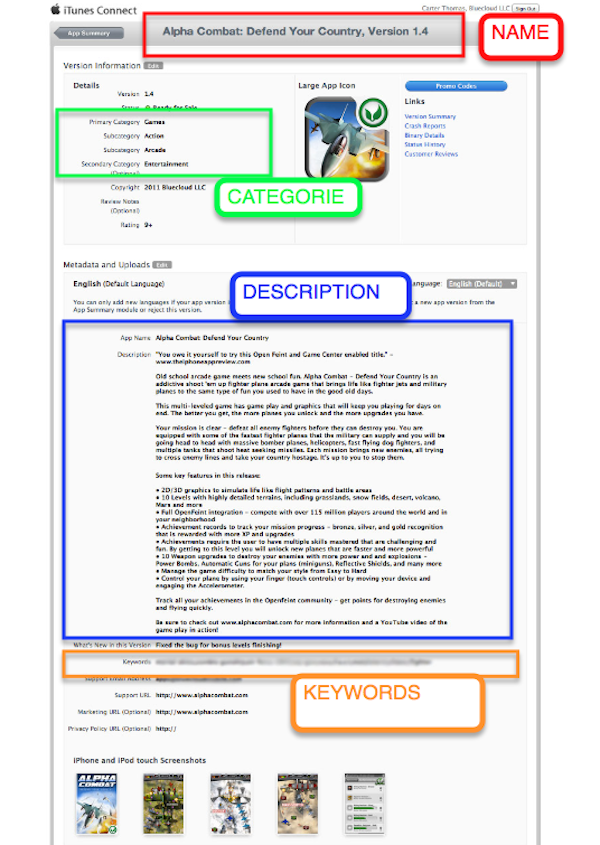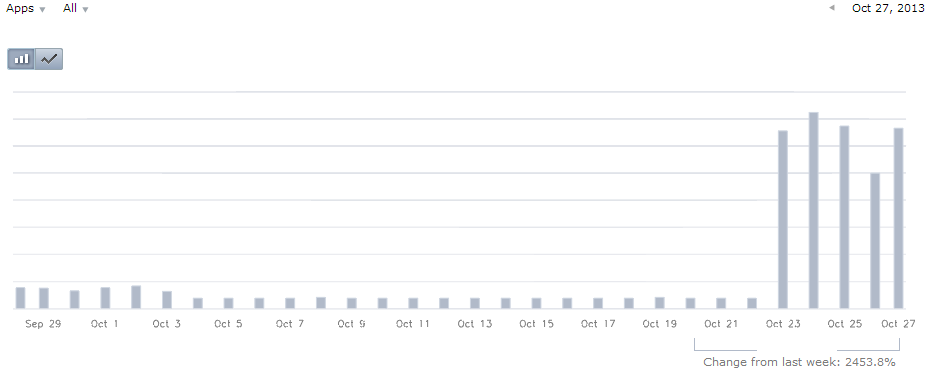App guys know that making apps doesn’t always result in customers flocking to their apps to downloads. Ultimately it really boils down to how people find your app and how they find your app is based on the best keywords you choose. In this quick case study, we show you how to choose the right keywords for your app.
Apple isn’t a search engine company so your complex ways of optimizing for Google don’t follow suit here. Apple’s logic of ranking apps does rely on dozens of different criteria which we covered in our last post. However, it really comes down to two main areas: your title and keywords (hidden from public). Your description has no effect on rankings and its arguable that the developer / company name matter either. This strategy of app optimization might sound familiar since Google used to rely heavily on the ‘meta keywords’ on a websites page back in the day.
The single most important element of success is picking the right keywords. This is confirmed time after time from various entrepreneurs who have had great success in the app game including our latest success story Braydon of Sitrusy. People look for apps within the Apple iTunes store ecosystem so it makes the most sense to focus the time and effort within it rather than trying to do press releases or paid app reviews.
You first want to pick the right keywords based on search volumes and interest outside of Apple using free tools provided by companies like Google which we covered in the past. This data will help you validate your keywords and app ideas in the process.
When you actually create your app and have it ready for submission, you have the tough choice of choosing a brandable name or using a keyword rich name. This is really up to you but if you plan to build a brand around your app then it might make more sense to look at it from a long term angle. If you’re in it to build a portfolio then it makes sense to go the quick and easy route. A combination of brandable and keywords would be a win-win combo.
The meat and potatoes of this is when you arrive to the keywords section. This section has a limit of 100 characters so be sure to not use spaces between your words. Also do not use phrases but rather words separated by commas, since Apple can decipher and mix and match words to make phrases. So for example, if your keywords consist of “online,holdem,poker,video,blackjack,casino,vegas” (notice no spaces), and a user types in “online poker casino”, Apple will still be able to show your app even if you didn’t do “online poker casino,gambling,texas holdem”. Do not put any duplicate keywords or even any from your title.
You obviously want to use the keywords that are the most relevant to your app. So it would be wise to add keywords that are relevant to the things your app can do, the demographic it targets, and maybe even specific sections within your app. Some developers like to piggyback off popular apps by adding keywords of other app names but Apple has definitely caught on to that and penalize those who try to abuse that.
Here’s a quick recap:
- Keywords matter for title and keywords fields mostly.
- Don’t try to go after short tail competitive keywords.
- Go after low competition keywords (fewer returned results) but are relevant.
- Character limit is set to 100 characters so add keywords separated by commas but no spaces.
- Separate words by commas rather than phrases since Apple will mix and match.
- Try to research keywords using tools like Google Keyword Planner.
- Think outside the box and try adding your competitors to show up next to them as an alternative.
- Keep testing and tweaking.
If you play your cards right, your app downloads might look a little something like this…


